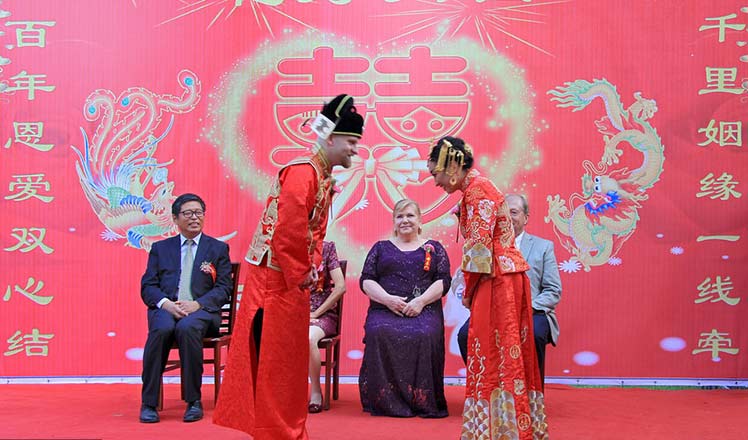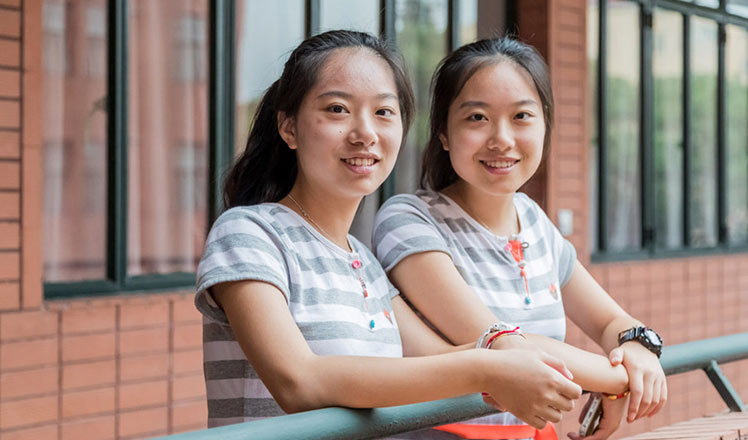Scientists' discover genetic basis for rice hybrid performance
Updated: 2016-09-10 07:10
By Zhou Wenting in Shanghai(China Daily)
|
||||||||
Chinese scientists have found the genetic basis of what makes rice hybrids perform better than their inbred parents, offering a potential boon for breeding by precise molecular design to meet global food demands.
They have discovered how the more than 400 genetic locations that determine the traits of rice are expressed in hybrid rice varieties, which will serve as navigators to produce new rice products of high yield and quality, said Han Bin, leading researcher of the team and director of the Institute of Plant Physiology and Ecology, a branch of the Shanghai Institutes for Biological Sciences of the Chinese Academy of Sciences.
The discovery, made after eight years of study, was published on the website of the scientific journal Nature on Thursday.
Breeding hybrid rice varieties began in the 1970s in China, and a large number of such varieties have been brought into being after repeated attempts, contributing greatly to food security.
Researchers knew that only through fully understanding the genetic basis at the molecular level could they achieve more efficient use of hybrid improvements.
The team collected nearly 1,500 samples of hybrid rice from around the country, and selected 17 that were representative of a variety of indicators, including the place of origin and grain yield. They analyzed more than 10,000 rice lines produced by the 17 varieties.
"It's like 17 couples gave birth to more than 10,000 children, and we looked for the same genetic patterns of those that displayed the same specific good yield-related traits," said Huang Xuehui, another researcher on the team.
"With the large samples and big data analysis, together with the latest technology in the areas of genomics, quantitative genetics and computational biology, we found that a certain genetic variation at a genetic locus is related to a certain trait of the crop," Huang said.
They have also found that when certain genes are put together, they may inhibit each other, so rice-breeding scientists can avoid such combinations.
Han said they expect to cooperate with rice-breeding scientists in two years to speed up their practice. "It usually takes eight to 10 years to cultivate a new variety, but the duration will be reduced by half," he said.
zhouwenting@chinadaily.com.cn
(China Daily 09/10/2016 page4)
- Britain's ex-leader Cameron resigns as lawmaker
- US flies B-1B bombers over ROK after DPRK's nuke test
- S Korea jolted by biggest-ever earthquake, tremor felt nationwide
- Cuba, US hold first talks on intellectual property
- Princeton, Cal top college rankings
- Clinton says may restart campaigning in a 'couple of days'

 Orphaned Chinese marries American at SOS village
Orphaned Chinese marries American at SOS village
 French royal porcelains shine in Xi'an
French royal porcelains shine in Xi'an
 How to raise great kids? A case for twin girls
How to raise great kids? A case for twin girls
 Photographers capture the fun side of a full moon
Photographers capture the fun side of a full moon
 Top 10 most valuable companies in China
Top 10 most valuable companies in China
 US marks 15th anniversary of 9/11 attacks
US marks 15th anniversary of 9/11 attacks
 Beautiful, smart robots shine at expo in Nanjing
Beautiful, smart robots shine at expo in Nanjing
 In pics: Top 10 most global cities in 2016
In pics: Top 10 most global cities in 2016
Most Viewed
Editor's Picks

|

|

|

|

|

|
Today's Top News
Trump outlines anti-terror plan, proposing extreme vetting for immigrants
Phelps puts spotlight on cupping
US launches airstrikes against IS targets in Libya's Sirte
Ministry slams US-Korean THAAD deployment
Two police officers shot at protest in Dallas
Abe's blame game reveals his policies failing to get results
Ending wildlife trafficking must be policy priority in Asia
Effects of supply-side reform take time to be seen
US Weekly

|

|







